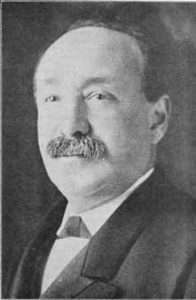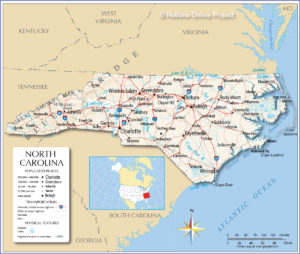In 2005, in the midst of a career of traveling around the world to help set up elections in some of the most challenging places on earth – Afghanistan, Burma, Egypt, Lebanon, South Africa, Sudan and Yemen, among others – my Danish colleague, Jorgen Elklit, and I designed the first comprehensive method for evaluating the quality of elections around the world. Our system measured 50 moving parts of an election process and covered everything from the legal framework to the polling day and counting of ballots.
In 2012 Elklit and I worked with Pippa Norris of Harvard University, who used the system as the cornerstone of the Electoral Integrity Project. Since then the EIP has measured 213 elections in 153 countries and is widely agreed to be the most accurate method for evaluating how free and fair and democratic elections are across time and place.
When we evolved the project I could never imagine that as we enter 2017, my state, North Carolina, would perform so badly on this, and other, measures that we are no longer considered to be a fully functioning democracy.
In the just released EIP report, North Carolina’s overall electoral integrity score of 58/100 for the 2016 election places us alongside authoritarian states and pseudo-democracies like Cuba, Indonesia and Sierra Leone. If it were a nation state, North Carolina would rank right in the middle of the global league table – a deeply flawed, partly free democracy that is only slightly ahead of the failed democracies that constitute much of the developing world.
Indeed, North Carolina does so poorly on the measures of legal framework and voter registration, that on those indicators we rank alongside Iran and Venezuela. When it comes to the integrity of the voting district boundaries no country has ever received as low a score as the 7/100 North Carolina received. North Carolina is not only the worst state in the USA for unfair districting but the worst entity in the world ever analyzed by the Electoral Integrity Project.
That North Carolina can no longer call its elections democratic is shocking enough, but our democratic decline goes beyond what happens at election time. The most respected measures of democracy — Freedom House, POLITY and the Varieties of Democracy project — all assess the degree to which the exercise of power depends on the will of the people: That is, governance is not arbitrary, it follows established rules and is based on popular legitimacy.
The extent to which North Carolina now breaches these principles means our state government can no longer be classified as a full democracy.
First, legislative power does not depend on the votes of the people. One party wins just half the votes but 100 percent of the power. The GOP has a huge legislative majority giving it absolute veto-proof control with that tiny advantage in the popular vote. The other party wins just a handful of votes less and 0 percent of the legislative power. This is above and beyond the way in which state legislators are detached from democratic accountability as a result of the rigged district boundaries. They are beholden to their party bosses, not the voters. Seventy-six of the 170 (45 percent) incumbent state legislators were not even opposed by the other party in the general election.
Second, democracies do not limit their citizens’ rights on the basis of their born identities. However, this is exactly what the North Carolina legislature did through House Bill 2 (there are an estimated 38,000 transgender Tar Heels), targeted attempts to reduce African-American and Latino access to the vote and pernicious laws to constrain the ability of women to act as autonomous citizens.
Third, government in North Carolina has become arbitrary and detached from popular will. When, in response to losing the governorship, one party uses its legislative dominance to take away significant executive power, it is a direct attack upon the separation of powers that defines American democracy. When a wounded legislative leadership, and a lame-duck executive, force through draconian changes with no time for robust review and debate it leaves Carolina no better than the authoritarian regimes we look down upon.
What is to be done? How do we reverse the slide and become a democracy once again? Many of the issues that face us are national questions, but there are flaws in our government that can be corrected at the state level.
The first step to recovery is self-awareness. We need to put aside the complacent hyperbole and accept that in North Carolina we no longer live in a functioning democracy worth its name. We have become one of those struggling developing world states that needs to claw its way slowly toward democratic integrity.
Practically we need to address the institutional failures which have cost us our democratic ranking – districting, equal access to the vote and the abuse of legislative power. An independent commission is the sine-qua-non of democratic districting (no democracy in the world outside of the U.S. allows the elected politicians to draw the lines). Voter registration and poll access should make voting as easy as possible and never be skewed in favor of any one section of society. Last, elected officials need to respect the core principles of democracy – respect the will of the voters, all the voters and play the game with integrity.
Respect for democracy is not a partisan issue. In America true Republicans are as loyal to democratic principles as are Democrats.
Andrew Reynolds has consulted in over 25 nations on issues of democratic design since 1991. His most recent book is The Arab Spring: Pathways of Repression and Reform (Oxford). He is a Professor of Political Science at the University of North Carolina at Chapel Hill.
In: newsobserver.com





